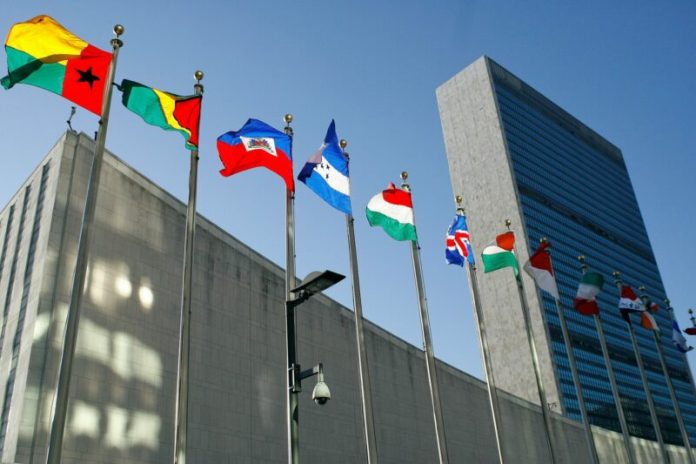They were among 49 migrants and refugees aboard a rubber boat that departed from Zuwara in northwest Libya around 3am on 3 November, the International Organization for Migration (IOM) said on Wednesday, citing survivors.
The vessel capsized roughly six hours later after high waves caused the engine to fail. All passengers, 47 men and two women, were thrown overboard.
Adrift at sea
The boat drifted for six days before Libyan authorities rescued seven men – four from Sudan, two from Nigeria and one from Cameroon – on 8 November.
The missing passengers include 29 from Sudan, eight from Somalia, three from Cameroon, and two from Nigeria.
“IOM’s team provided the survivors with emergency medical care, water, and food upon arrival at the disembarkation point in coordination with relevant authorities,” the agency said in a statement.
Cooperation and safe migration
The tragic event comes just weeks after other deadly incidents off Surman, Libya, and the island of Lampedusa in southern Italy.
Latest data from IOM’s Missing Migrants Project reveals that the death toll in the Central Mediterranean has already surpassed 1,000 this year, as people attempt the treacherous sea journey to Europe.
“With this latest shipwreck, the total has risen even further, reinforcing the urgent need for strengthened regional cooperation, expanded safe and regular migration pathways, and more effective search and rescue operations to prevent further loss of life,” the statement concluded.
Deadliest migration route
The Missing Migrants Project was established in 2014. Since then, more than 25,600 people have died or disappeared in the Central Mediterranean, which spans from North Africa to Italy.
It is the world’s deadliest migration route due to factors that include the length of the journey, which can take days; increasingly dangerous smuggling patterns, gaps in search-and-rescue capacity and restrictions on the work of NGOs saving lives at sea.
Furthermore, migrants often make the crossing in unseaworthy, overloaded inflatable boats. As many of these vessels can be launched at one time, this can complicate search and rescue efforts.
More information can be found here.
Source of original article: United Nations (news.un.org). Photo credit: UN. The content of this article does not necessarily reflect the views or opinion of Global Diaspora News (www.globaldiasporanews.net).
To submit your press release: (https://www.globaldiasporanews.com/pr).
To advertise on Global Diaspora News: (www.globaldiasporanews.com/ads).
Sign up to Global Diaspora News newsletter (https://www.globaldiasporanews.com/newsletter/) to start receiving updates and opportunities directly in your email inbox for free.


























